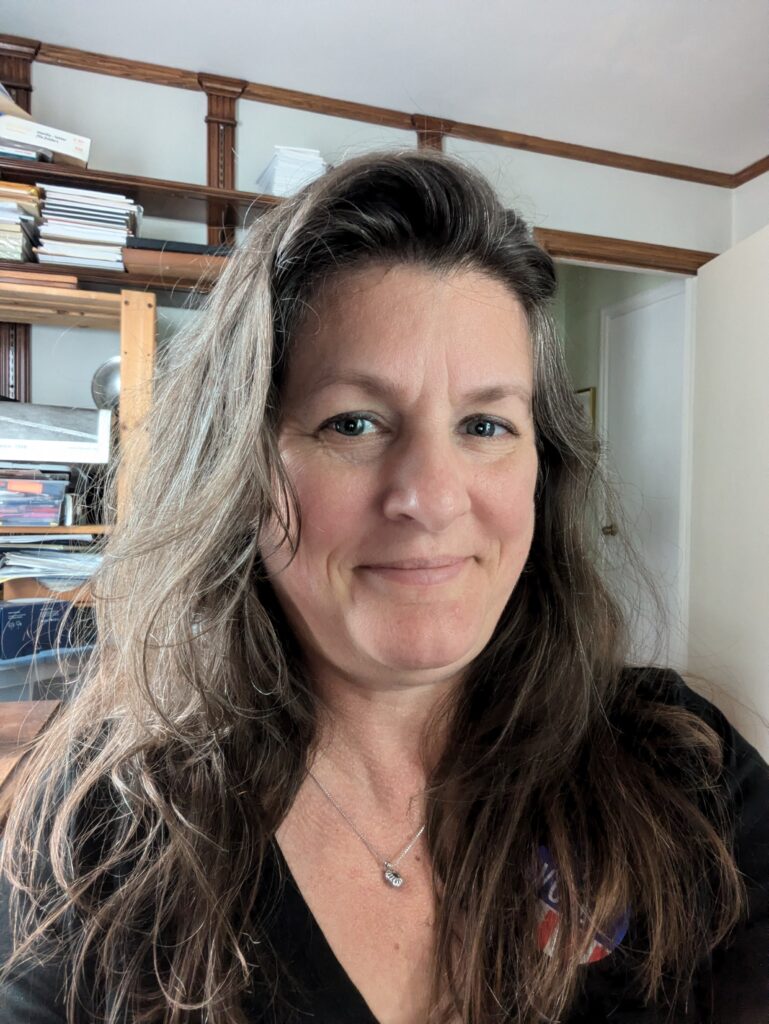UW-Eau Claire
Assistant Professor
Mathematics
 Katrina Stullken Rothrock is an Assistant Professor of Mathematics Education at the University of Wisconsin-Eau Claire. She earned her PhD and MA in Mathematics Education, and her BS in Architectural Engineering all from the University of Kansas. Her postsecondary career began at the University of Kansas in the UKanTeach math and science teacher preparation program, and joined UWEC in 2020 where she teaches mathematics to future elementary and secondary teachers, as well as coordinating the developmental mathematics courses and tutoring. Her research interests focus on student learning in mathematics, including barriers to learning and the transition from learning experiences from secondary to postsecondary settings, as well as mathematical identity, self-efficacy, mindset, self-regulated learning strategies, and communities of practice among both learners and educators. Prior to her work in higher ed, she enjoyed her work in industry as a consulting electrical engineer, as well as her time as a high school mathematics teacher. When not at work, she enjoys walking with her dog, gardening, and creative cooking. .
Katrina Stullken Rothrock is an Assistant Professor of Mathematics Education at the University of Wisconsin-Eau Claire. She earned her PhD and MA in Mathematics Education, and her BS in Architectural Engineering all from the University of Kansas. Her postsecondary career began at the University of Kansas in the UKanTeach math and science teacher preparation program, and joined UWEC in 2020 where she teaches mathematics to future elementary and secondary teachers, as well as coordinating the developmental mathematics courses and tutoring. Her research interests focus on student learning in mathematics, including barriers to learning and the transition from learning experiences from secondary to postsecondary settings, as well as mathematical identity, self-efficacy, mindset, self-regulated learning strategies, and communities of practice among both learners and educators. Prior to her work in higher ed, she enjoyed her work in industry as a consulting electrical engineer, as well as her time as a high school mathematics teacher. When not at work, she enjoys walking with her dog, gardening, and creative cooking. .
TEACHING AND LEARNING PHILOSOPHY
Embracing differences is essential for learning, and yet often differences are at the core of inequitable access to education. Mathematics education in particular has a devastating history of limiting access, excluding students with diverse and often minoritized sets of identities from feeling connected and accepted into mathematical communities of learners. I am committed to the following principles that guide my philosophies of teaching and learning in order to create safe and productive learning spaces for all.
* All students can learn.
* Be a facilitator of learning, not the expert.
* Explain less, ask better questions, embolden students to take risks, and insist on justification.
* Teaching is unique, both to each teacher and to each student and group of students.
* Teaching should be worthwhile and relevant.
* Be passionate.
* Students’ perceptions about the nature of mathematics matter.
* Teaching must involve differentiation.
* Students can and should be leaders in the classroom.
* Be brave: Teachers are learners, too.
Teaching involves developing pathways for learners to become metacognitively engaged in their own learning processes and needs. Learning involves the development of understanding such that learners can transfer useable knowledge to new contexts. I love my role as both teacher and learner, and I strive to create classroom environments that invite students to experience their own joy of learning.
